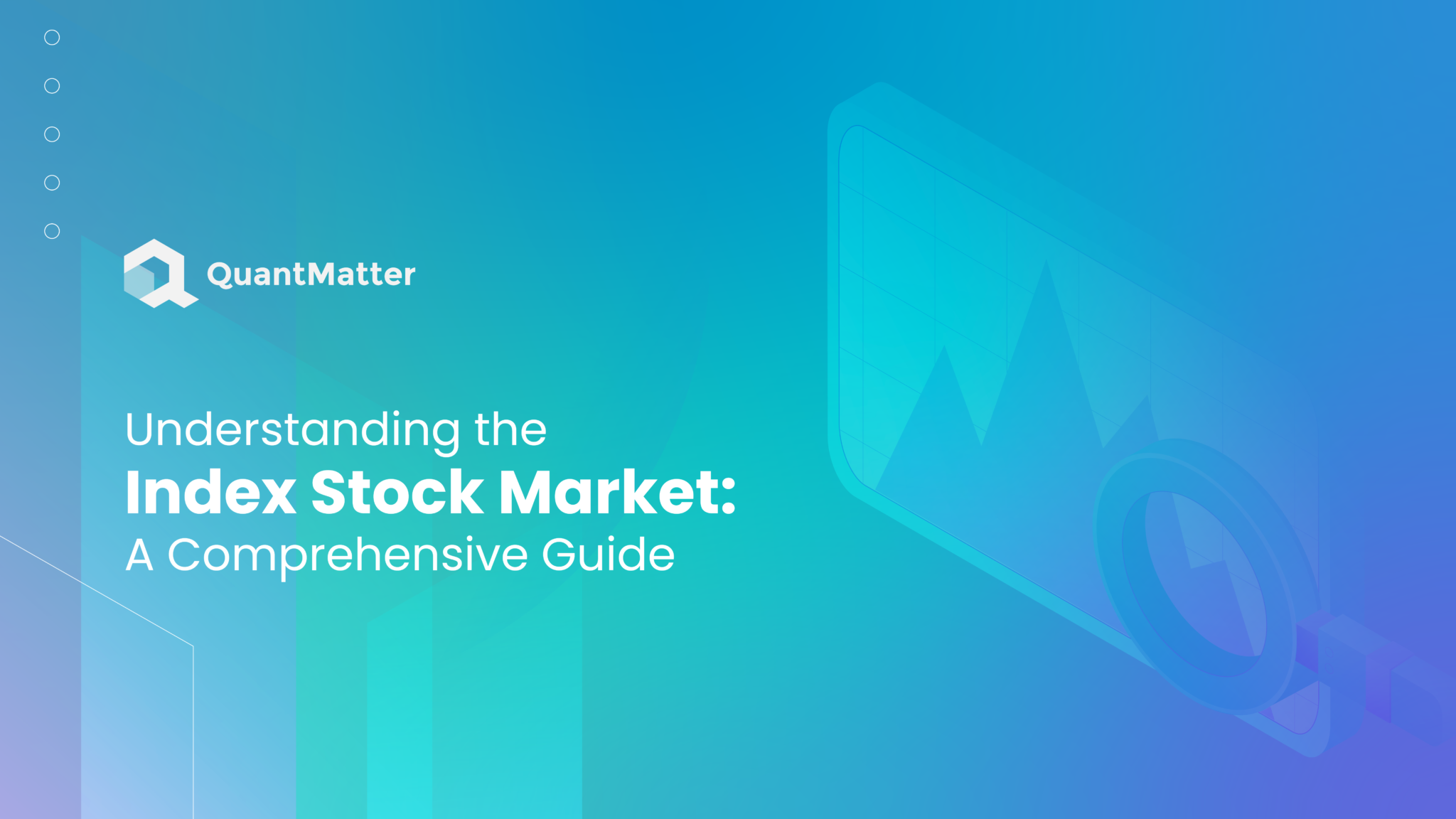
The world of investing presents itself as a complex maze, especially for those unfamiliar with its intricacies and jargon. The index stock market, in particular, is a fundamental aspect that plays a pivotal role in grasping the wider spectrum of investment strategies. It serves as a crucial benchmark for gauging market trends and assessing the performance of specific sectors or the market as a whole. As such, gaining a solid understanding of index stock markets is essential for anyone aspiring to navigate the investment landscape effectively.
This comprehensive guide is meticulously crafted to demystify the concept of the index stock market, aiming to make it more accessible to a broader audience. With a focus on clarity and simplicity, the guide seeks to unravel the complexities surrounding index funds, how they operate, and their importance in the investment world. By shedding light on these aspects, the guide intends to empower readers with the knowledge needed to make informed decisions, whether they are making their initial foray into investing or looking to expand their existing portfolio.
Whether you’re a beginner eager to make your first investment or an experienced investor striving to deepen your understanding, this article promises to offer valuable insights. It covers the workings and significance of index stock markets in a way that is both informative and engaging. By the end of this guide, readers will be equipped with a clearer understanding of how index stock markets function, their role in the global financial ecosystem, and how they can be leveraged to achieve investment goals. This endeavor to simplify the complexities of the investment world underscores the guide’s commitment to fostering financial literacy and encouraging more individuals to partake in the empowering journey of investing.
What is an Index Stock Market?

An index in the stock market is essentially a tool used to represent the performance of a particular section of the market. It does this by tracking the prices of a selected group of stocks, which can be seen as a sample representing a broader market segment. These stocks are often chosen based on their market capitalization, sector, or other criteria, and the index value is usually calculated through a weighted average of their prices.
The main purpose of a stock market index is to provide a clear, concise snapshot of market trends, allowing investors to gauge the overall health and direction of the market without having to analyze each individual stock. By comparing the performance of their investments to a relevant index, investors can also assess how well their portfolio is doing in the context of the broader market.
Also Read: What Is A Put Option? Understanding Its Mechanics, Uses, and Implications
Indexes like the S&P 500, Dow Jones Industrial Average (DJIA), and Nasdaq Composite are among the most well-known and widely followed in the United States. Each serves a specific role, with the S&P 500 offering a broad representation of the market by including 500 of the largest companies, the DJIA including 30 significant industrials to give a snapshot of the industrial sector, and the Nasdaq Composite focusing primarily on technology and internet-related companies.
Moreover, these indexes are not only important for individual investors but also play a critical role for professional fund managers, economists, and policymakers as indicators of economic health and drivers of financial decisions. They can influence market sentiment and guide investment strategies, highlighting their significance beyond just numbers on a screen. In essence, stock market indexes are foundational to understanding market movements, facilitating informed investment decisions, and assessing economic indicators.
How Does the Index Stock Market Work?

The index stock market operates as a barometer for the health and direction of either specific sectors of the economy or the market as a whole. To understand its functioning, it’s essential to grasp what an index is and how it is constructed. An index is essentially a curated list of stocks that are chosen to represent a particular market or a sector within that market. The selection of these stocks is based on specific criteria, aiming to provide a comprehensive snapshot of the market or sector’s performance.
Selection of Stocks
The initial phase in the operation of the index stock market revolves around the meticulous selection of stocks. This critical process entails identifying and choosing a diverse yet representative group of stocks that, collectively, encapsulate a substantial segment of the market or are emblematic of a particular sector. The criteria for selection are multifaceted, often encompassing factors such as the size of the companies measured by market capitalization, the industry sectors these companies operate within, their liquidity levels—indicative of how easily shares can be bought and sold in the market—and their overarching influence on the economic landscape. This strategic selection is pivotal for the construction of an index, as it seeks to mirror the dynamic movements and underlying trends of the broader market or targeted sectors with precision.
By integrating a variety of stocks that fulfill these criteria, index creators aim to engineer a comprehensive tool that investors and analysts can use to gauge market health, compare performance, and make informed investment decisions. The significance of this selection process cannot be overstated; it forms the foundation of the index, ensuring its relevance and reliability in reflecting market trends. Whether the focus is on a broad market index that aims to capture the economy’s overall performance or a sector-specific index designed to track industry-specific trends, the careful curation of included stocks is essential for providing valuable insights into market dynamics.
Weighting of Stocks
Once the stocks are selected, they need to be weighted within the index. This weighting can be done in several ways, each reflecting different aspects of the market:
- Market Capitalization Weighting: The most common method, where companies are weighted based on their total market value. This means larger companies have a bigger impact on the index’s performance.
- Price Weighting: In this method, stocks are weighted according to their price per share, with higher-priced stocks having more influence on the index.
- Equal Weighting: Each stock in the index has the same weight, regardless of its size or share price. This method gives smaller companies an equal voice in the index’s performance.
- Fundamental Weighting: Stocks are weighted based on economic factors, such as dividends, earnings, or sales, reflecting the company’s fundamental strength.
Aggregation and Index Calculation
The performance of the selected and weighted stocks is then aggregated to calculate the index’s value. This involves summing up the weighted prices of the stocks and applying a formula to arrive at a single numerical value. This value changes with the stock prices, reflecting the overall market or sector’s performance over time.
Purpose and Use
Indexes serve multiple purposes in the financial world. They provide a clear and concise way to track the performance of a market or sector, offering insights into economic trends. Investors and financial analysts use these indexes to gauge market sentiment, compare the performance of their investments, and make informed decisions on buying or selling securities. Moreover, indexes also serve as benchmarks for the performance of mutual funds and other investment vehicles, allowing investors to compare their fund’s performance against a well-defined segment of the market.
The index stock market simplifies the vast complexity of the financial markets into understandable and trackable metrics. By analyzing the movements and trends within these indexes, investors and analysts can better navigate the investment landscape, making strategic decisions to capitalize on market movements.
Why are Index Stock Markets Important?

Index stock markets play a pivotal role in the global financial ecosystem, providing invaluable tools and benchmarks for investors, fund managers, and analysts alike. Their importance can be categorized into several key areas, each of which contributes to the broader understanding and functioning of the investment world.
Benchmarks for Performance Measurement
Index stock markets serve as critical benchmarks for fund managers and institutional investors. By comparing the performance of their portfolios to a relevant market index, managers can gauge the effectiveness of their investment strategies relative to the broader market. This comparison helps in assessing whether an investment strategy has added value over simply investing in the market as a whole. It also facilitates the alignment of investment performance with the expectations of stakeholders and investors.
Guidance for Individual Investors
For individual investors, index stock markets act as a compass in the vast sea of investment opportunities. They provide a snapshot of market trends, helping investors understand which sectors or industries are outperforming or underperforming at any given time. This information is crucial for making informed decisions about where to allocate resources in order to maximize returns or minimize risks. Indexes also serve as educational tools, helping new investors understand market dynamics and how different factors can influence stock prices.
Foundation for Index Funds and ETFs
Index funds and Exchange-Traded Funds (ETFs) are investment vehicles designed to replicate the performance of a specific index. These funds provide investors with a straightforward, cost-effective way to gain exposure to a broad cross-section of the market without the need to pick individual stocks. This approach to investing reduces the risks associated with individual securities and offers diversification, which is a key principle of sound investing. Index funds and ETFs have become increasingly popular, offering investors of all sizes access to professional-grade investment strategies with lower fees.
Market Sentiment and Economic Indicators
Index stock markets often reflect the overall sentiment of the financial markets and can be indicators of economic health. Movements in major indexes are closely monitored by policymakers, economists, and investors as they can signal shifts in economic trends. A rising market index may indicate investor confidence and economic expansion, while a declining index can signal economic downturns or investor pessimism. These indexes help stakeholders make more informed decisions regarding fiscal policies, investment strategies, and economic forecasting.
Also Read: Stock Investing Futures: Strategies for Long-Term Success
Global Investment Flows
In an increasingly interconnected world, index stock markets also influence and reflect global investment flows. International investors often look to major market indexes as entry points for investing in a particular country or region. These indexes offer a way to gauge the health of a foreign market and can attract or deter foreign investment based on perceived opportunities or risks. Consequently, movements in these indexes can have ripple effects across global financial markets, influencing exchange rates, commodity prices, and international trade balances.
Index stock markets are not just indicators of financial market performance; they are integral to the decision-making processes of a wide range of market participants. They provide a framework for performance evaluation, a guide for investment decisions, a foundation for popular investment products, and insights into economic health and investor sentiment. Through these roles, index stock markets facilitate more efficient allocation of capital, contributing to the overall health and growth of the global economy.
Conclusion
Understanding the index stock market is fundamental for anyone looking to navigate the investment world with confidence. It provides a window into the health of the economy and the stock market, offering crucial insights that can guide investment decisions. The simplicity and efficiency of index stock markets make them powerful tools for investors of all levels, offering a way to benchmark performance, understand market trends, and explore investment opportunities.
In a landscape as vast and varied as the stock market, the index stock market stands as a beacon, guiding investors through its complexities. By offering a concise summary of market trends and performance, index stock markets demystify the world of investing, making it accessible and understandable to all. As you embark on or continue your investment journey, let the knowledge of index stock markets illuminate your path, providing clarity and confidence in your investment decisions.
In conclusion, the index stock market is not just a measure or a tool; it’s a compass that guides investors through the tumultuous waters of the stock market. Its importance cannot be overstated, serving as the bedrock for investment strategies and decisions across the globe. Whether you’re taking your first steps into investing or looking to refine your strategies, understanding the index stock market is crucial. It’s a journey of discovery, learning, and empowerment, opening doors to informed investment choices and financial growth.
Disclaimer: The information provided by Quant Matter in this article is intended for general informational purposes and does not reflect the company’s opinion. It is not intended as investment advice or a recommendation. Readers are strongly advised to conduct their own thorough research and consult with a qualified financial advisor before making any financial decisions.
Joshua Soriano
As an author, I bring clarity to the complex intersections of technology and finance. My focus is on unraveling the complexities of using data science and machine learning in the cryptocurrency market, aiming to make the principles of quantitative trading understandable for everyone. Through my writing, I invite readers to explore how cutting-edge technology can be applied to make informed decisions in the fast-paced world of crypto trading, simplifying advanced concepts into engaging and accessible narratives.
-
Joshua Soriano#molongui-disabled-link
-
Joshua Soriano#molongui-disabled-link
-
Joshua Soriano#molongui-disabled-link
-
Joshua Soriano#molongui-disabled-link

